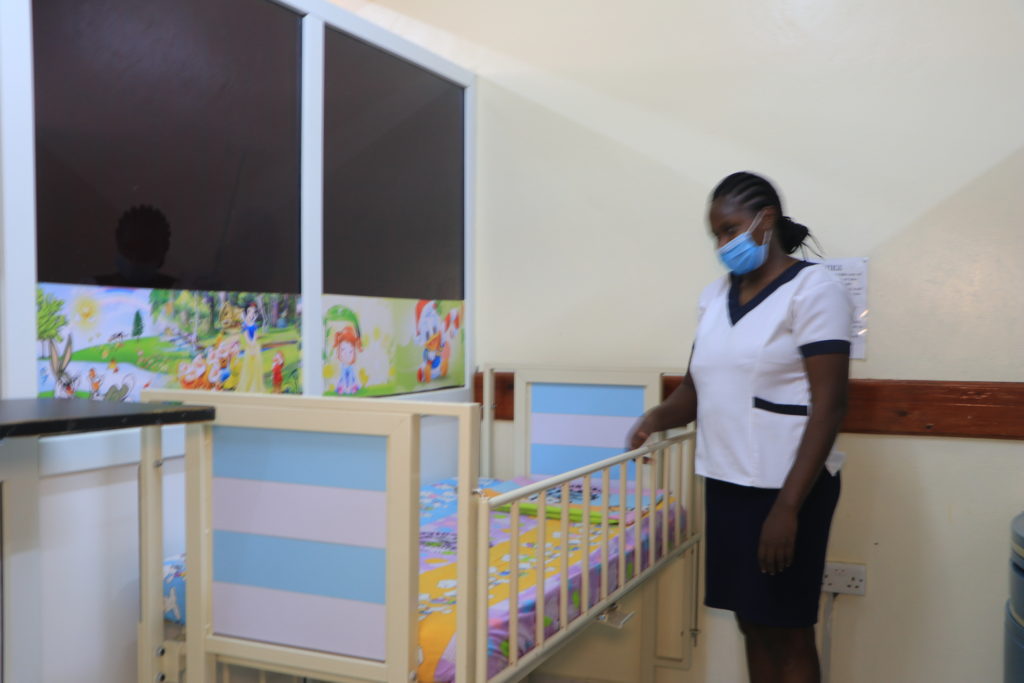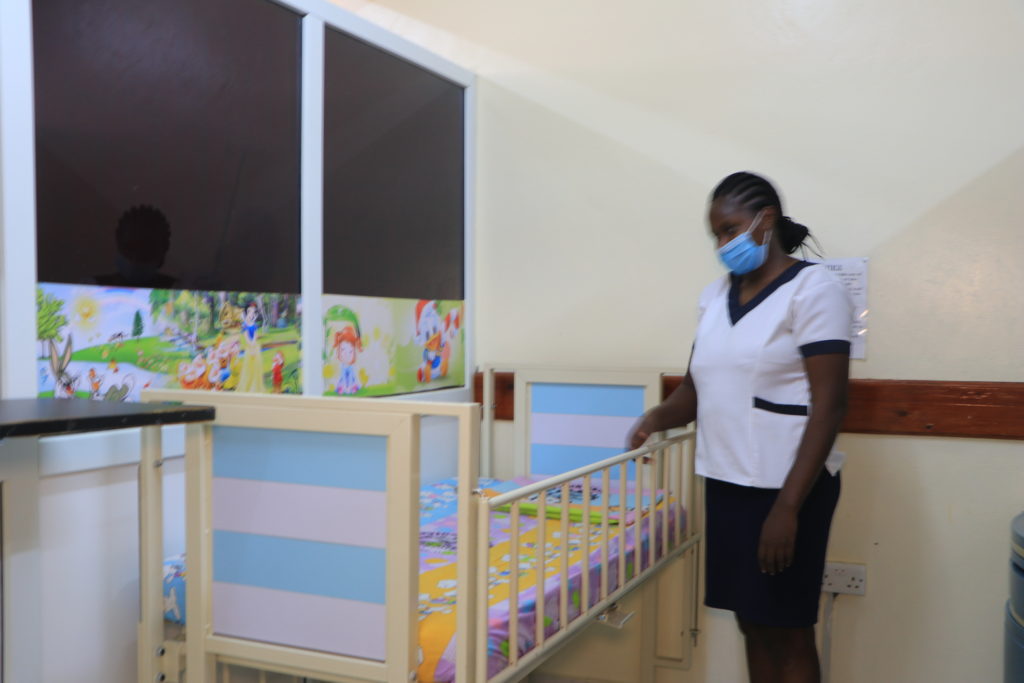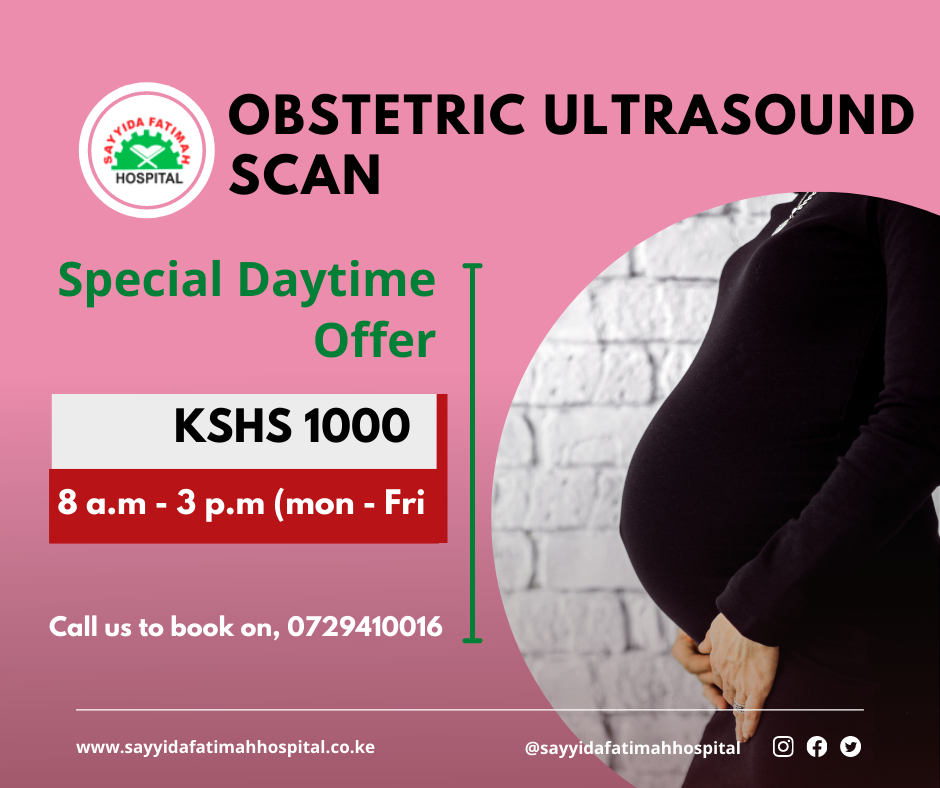
Child welfare clinics(0-5 years)


Our Services
Family planning
Antenatal visits – check-ups during your pregnancy
When you are pregnant, it is important for you to have regular check-ups with a midwife or doctor. These check-ups are called antenatal care or antenatal visits. Antenatal means before birth.
You see antenatal care for:
Emotional support and advice.
Antenatal visits also give you a chance to ask any questions and to talk about any issues that you are unsure about, such as aches and pains, the birth, feeding your baby or any other concerns. Before each visit, it is a good idea to think about the things you want to talk about and then write them down so that you don’t forget them.
Medical care for you and your baby.
Through out your pregnancy , women should have 8 contacts with a health care provider. At Sayyida Fatimah hospital we have a qualified team of caring nurses to take care of you at every visit.If you think you may be pregnant you can visit us then we can discuss what type of care you would like to have, and when and where you should have your next visit. We will also be able to arrange for some tests (blood tests, scans) that can be done before your first antenatal visit.
The timing of your visits with us will be arranged on an individual basis depending on your test results.
A normal pregnancy lasts 38–42 weeks.
After your first antenatal visit (booking visit) you may have your next visit around 19-20 weeks, then again at 28 weeks gestation, every 4 weeks until later in your pregnancy, when visits become more frequent as you get closer to your due date.
You may need to have antenatal visits more often if there are any problems with you or your baby.
You can also visit us at any time during your pregnancy if you are worried about how your pregnancy is progressing.
Relevant and timely pregnancy information.
Regular checks during your pregnancy can assist in identifying and reducing risks to either you or your baby.
Although you may be feeling well, it is still important to go to all your antenatal check-ups.At all visits you will have your blood pressure checked.
The doctor or midwife will palpate (feel) your abdomen to see how much your baby has grown and listen to your baby’s heartbeat.
On some occasions you may be weighed, have blood taken for tests and may have your urine checked.
Your antenatal visits are a great way to learn about how your baby is growing and what is happening to your body.
Birth plan
We would urge you to consider your choices for this special time and to review these with us before going into labor so that any details which might put you or your baby at risk can be fully discussed before labor begins. Since labor and birth are soo unpredictable, it is not possible to tell exactly what will happen and you should be reassured our dedicated team is committed to providing quality care which is safe for both you and your baby. Sometimes, in emergencies, this may mean your preferences may not be able to be followed exactly. Wherever possible we would address reasons for this with you to facilitate informed consent and your understanding of events.
What to pack in your hospital bag
We suggest the following items be brought with you at the time you are admitted to the hospital for the birth of your baby.
For you
Your ID/passport or any other identification documents
1. Toiletries. Pack a few personal items, such as a toothbrush and toothpaste, a brush and comb and hair ties, or a headband. We will provide soap, basin, and slippers
2. Comfortable clothes like A bathrobe, a nightgown or two, and socks. Choose a loose, comfortable gown that’s either sleeveless or has short, loose sleeves so that your blood pressure can be checked easily.
3. Cell phone and charger. You may want to bring an extension cord in case your hospital bed is far away from the nearest outlet.
4. Underwear—seven to 10 pairs
5. Snacks or light meals. If you’re having a normal pregnancy and are at low risk for complications, you may be able to eat lightly during early labor. But
If you’re having a planned c-section, we would advise you to stop eating six to eight hours before your surgery.
6. Maternity bras—three or four
7. Nursing pads
8. Maternity or supersize sanitary pads—two packs
For your baby
1. Small beanie or hat—for use immediately after birth
2. Five warm outfits
3. Five singlets
4. Five baby blankets
5. One large packet of baby wipes
6. One packet of newborn disposable nappies.
7. Some burp cloths or cloth diapers for catching any spit-up while burping your baby.
Our Facilities
A fully equipped labor ward and maternity ward with private rooms.
State of the art special baby unit(neonatal) with round the clock assigned nurses and doctor.
Post-natal
In your first few days with your newborn at our facility we will help you care for your bundle of joy, it is important to us to offer you practical advice on how you should care for your child after you leave.
Here are a few things to keep in mind
Keep the baby warm – a baby should wear 1-2 layers more than an adult. If cold, put a hat on the baby’s head.
Care for the umbilical cord. Do not put anything on the stump.
Keep the baby clean. It is not necessary to wash the baby every day, but wash baby’s face and bottom when needed. Make sure the room is warm when undressing baby.
Provide nothing but breast milk day and night.
Let the baby sleep on his/her back or side.
Keep the baby away from smoke.
It is not recommended to expose the baby to direct sun.
Postpartum Care
In the first six-eight weeks after childbirth, a mothers body goes through many physical and emortional changes. Postpartum care involves getting proper rest, nutrition, and vaginal care.
Getting Enough Rest
Rest is crucial for new mothers who need to rebuild their strength. To avoid getting too tired as a new mother, you may need to:
sleep when your baby sleeps
keep your bed near your baby’s crib to make night feedings easier
allow someone else to feed the baby with a bottle while you sleep
Eating Right
Getting proper nutrition in the postpartum period is crucial because of the changes your body goes through during pregnancy and labor.
The weight that you gained during pregnancy helps make sure you have enough nutrition for breast-feeding. However, you need to continue to eat a healthy diet after delivery.
Experts recommend that breast-feeding mothers eat when they feel hungry. Make a special effort to focus on eating when you are actually hungry — not just busy or tired.
avoid high-fat snacks
focus on eating low-fat foods that balance protein, carbohydrates, and fruits and vegetables and drink plenty of fluids
Vaginal Care
New mothers should make vaginal care an essential part of their postpartum care. You may experience:
vaginal soreness If you had a tear during delivery,urination problems like pain or a frequent urge to urinate,discharge, including small blood clots, contractions during the first few days after delivery. Schedule a checkup with your doctor about six weeks after delivery to discuss symptoms and receive proper treatment. You should abstain from sexual intercourse for four to six weeks after delivery so that your vagina has proper time to heal.
DANGER SIGNS DURING PREGNANCY
convulsions/fits
severe headaches with blurred vision
fever and too weak to get out of bed
fast or difficult breathing.
Bleeding or leaking fluid from the vagina
Unusual or severe stomach pain or backaches
Frequent, severe, and/or constant headaches
Contractions, where your stomach muscles tighten, before 37 weeks that happen every 10 minutes or more often
Decrease in baby’s movements after 28 weeks
Dizziness
Excessive vomiting and diarrhea
Fever or chills
Pain or burning with urination
Swelling of face, fingers, and feet
Inability to tolerate foods or liquids
Muscular convulsions
Have thoughts of harming yourself or your baby.
DANGER SIGNS FOR THE NEWBORN
Consult with us immediately you see any of these signs.
difficulty in breathing or in drawing
fits
fever
feels cold
bleeding
not feeding
yellow palms and soles of feet
diarrhoea
difficulty feeding (poor attachment, not suckling well)
is taking less than 8 feeds in 24 hours
pus coming from the eyes or skin pustules
irritated cord with pus or blood
yellow eyes or skin.
ulcers or thrush (white patches) in the mouth – explain that this is different from normal breast milk in the mouth.

Paediatric ward

Female ward

male ward



